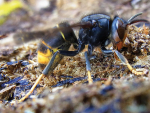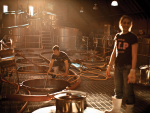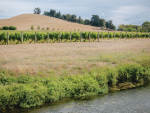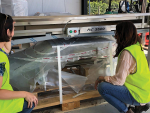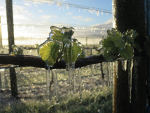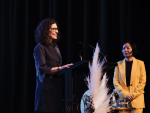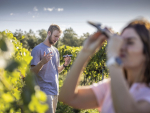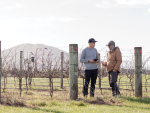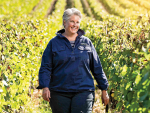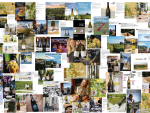The Advocacy team has had a busy start to the year, with engagement activities with key stakeholders, to ensure decision-makers have up-to-date information on the wine industry and to discuss issues of importance to our members.
Labelled by the European Union as one of the most dangerous plant pathogens in the world, xylella fastidiosa has been slowly spreading around the world since the 1880’s, when it was first noticed causing serious disease in Californian grape crops (Pierce’s disease).
The New Zealand Winegrowers Sustainability Report 2025 takes the pulse of the industry’s progress with sustainability.
Genetic modification has long been a topic of hot debate.
Strengthening biosecurity in New Zealand Vineyards: A new requirement for SWNZ members
I am writing this story with the 2025 harvest in full swing.
In February I enjoyed the opportunity to present a keynote address at Climate Action Week Marlborough on the reasons why climate change is the most significant long-term challenge facing our industry and what the short-term opportunities are for members to take action to reduce their carbon emissions.
Alicia Willner is one of the organisers of the Organic & Biodynamic Winegrowing Conference, on in Marlborough from 16-18 June. The winemaker says we can create the future we wish to see. "Small acts, when multiplied by many, can create transformative change."
Every day since Pinot Noir New Zealand 2025 we've been treated to glowing enthusiastic content on social media channels, online, and in print.
Sustainable Trade: Monitoring EU Developments
» Latest Print Issues Online
Editorial

From the CEO: Trade rules
Trade is important to our industry, whether it’s because 90% of our wine sales are in international markets, because of…

From the CEO: 2025, the good, the bad, and the...
The end of the year is fast approaching, so here are some thoughts on a few of the significant developments…
Popular Reads
Turning Old Grapevines into Gold: GreenVine Aotearoa’s circular solution
Jimmy Stewart is quite literally chipping away at circularity.
Kevin and Kimberley Judd: Four decades shaping Marlborough wine legacy
A Wine Marlborough Lifetime Achievement Award is “very premature”, say Kevin and Kimberley Judd, nearly 43 years after they came…
New Zealand Wine Tourism: Driving economic growth and customer connection
Wine tourism has evolved into a sophisticated, diverse and resilient part of the New Zealand wine sector's economy. Emma Jenkins MW talks…




